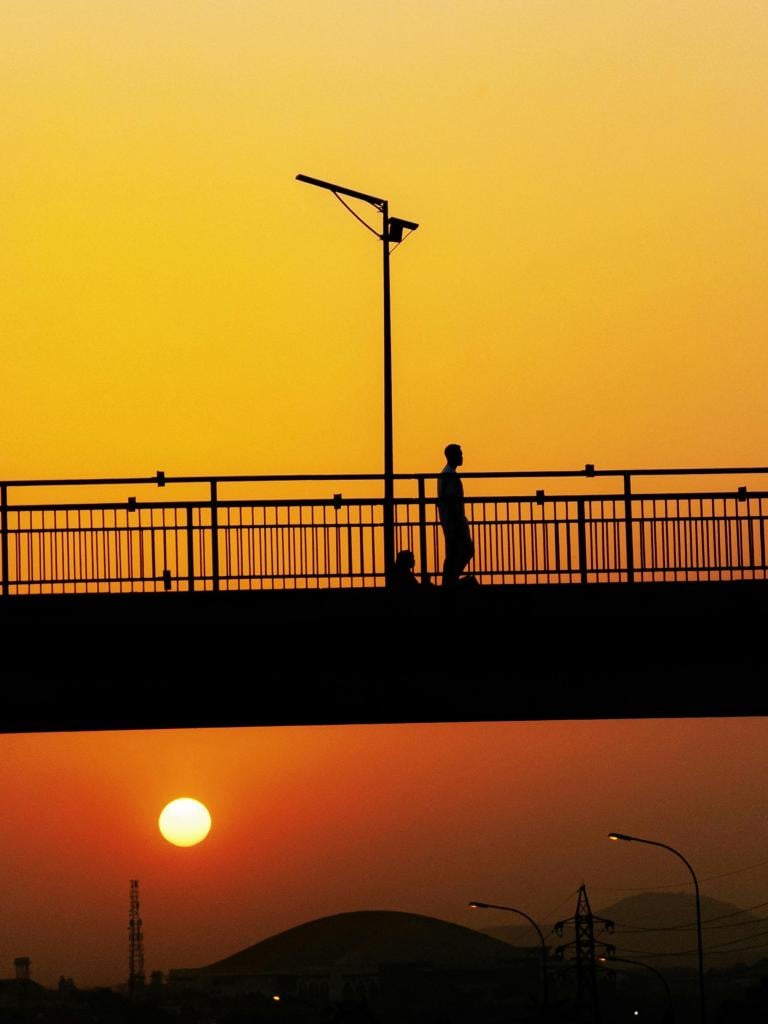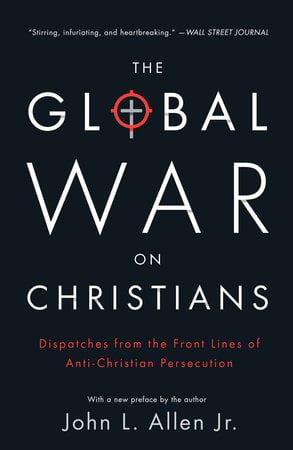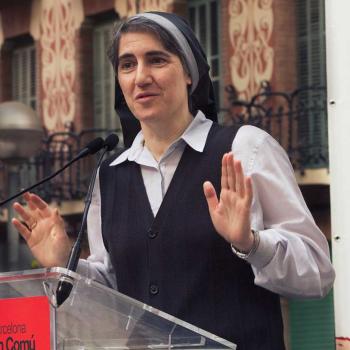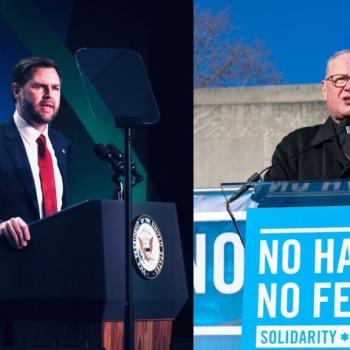
Covering, and Questioning, Anti-Christian Persecution
If you report on religion long enough, you’re bound to be called an anti-Christian bigot at some point in time.
In my 14 years of reporting, I’ve been labeled an atheist agent for my coverage of a book on how Jesus may have been a vegetarian, denounced as a prejudiced partisan as I covered instances of clergy abuse in Houston, Texas, and much worse for my writing on neo-Nazi ideology and racism among Lutherans in Germany and the U.S.
In each case, the critique of my writing was less about the coverage or claims therein, but much more to do with a feeling that anti-Christian bias — and even persecution — in the media is not only real but rampant.
When it comes to the issue of anti-Christian persecution itself, coverage in the media can sometimes swing between two magnetic poles. On one end are those who are convinced that such persecution is the most pressing contemporary human rights issue. On the other are those who equate such statements as melodrama, with little grounding in the lived reality of most communities worldwide.
Journalists covering the issue might be swayed depending upon their sources, who often have a stake in arguing one way or the other.
To best cover the matter of anti-Christian persecution, or to address it when it comes up in critiques of our coverage, reporters have to make two things clear: 1) many individuals and communities across the globe are vulnerable because of their identification as Christians and 2) that the extent of anti-Christian persecution is not as widespread or as grievous as some make it out to be.
To help navigate how to cover particular cases and claims, I recommend journalists consider issues related to power, the shift from “privilege to plurality,” and how Christians use the idea of persecution as a way to make sense of their faith in the 21st century.
The Facts of the Matter
When dealing with statistics related to anti-Christian persecution, reporters must — as with other statistics and assertions made by sources — verify what they read, testing the truth or establishing the accuracy of numbers presented to them as fact.

Author John L. Allen, Jr.
Organizations like the Center for the Study of Global Christianity (CSGC) claim there have been 90,000 – 164,000 Christian martyrs per year for the last three decades. Others provide estimates in the lower thousands and still others claim “genocide levels” of violence. The numbers and proclamations about there being “more Christians martyred in the twentieth century than in the previous nineteen centuries combined” can make many feel there is a “global war on Christians.”
But, behind these statistics are questions of definition and delineation that need interrogation. Who counts as a Christian? What is a martyr? What acts amount to persecution? Are there other factors that may help contextualize the data?
For example, in Nigeria, which has been labeled as the “most dangerous country in the world for Christians,” there are multiple factors that reporters should be aware of before characterizing the country as such. According to organizations like the French Institute for African Studies in Nigeria (IFRA), the narrative of interreligious violence by Muslims against Christians (or, for that matter, vice versa) is “too simplistic.” Instead, evidence shows that lethal intra-religious incidents between Islamic groups are higher than inter-religious attacks against Christians or their churches. Furthermore, the violence is not always caused by religious issues, and it is unclear whether more Christians than Muslims (or vice versa) are killed because of the violence.
Elsewhere, in places like Iraq and Syria, where the number of Christians has plummeted in recent years, it is important to point out that while numbers have been falling for decades, the rate of refugees ramped up as a result of civil wars in the wake of the U.S. invasion of Iraq in 2003 and the Arab Spring uprisings in Syria in 2011. Likewise, the Christian exodus from Palestine is also more likely the result of Israeli occupation than anti-Christian persecution by members of other faiths.
Power, Privilege, Plurality
Nonetheless, there seems to be enough evidence and reporting to support numerous claims of persecution of Christians in various corners of the globe.
But for reporters in the U.S., it is important to not let those statistics and true stories become overblown, especially as American Christians are likely to contort those facts to paint a false picture of persecution at home.
Covering religion in the U.S. and Europe over the last several years, I’ve come across numerous instances where Christians in those contexts claimed to be a marginalized minority. Whether it be Lutherans in Michigan or free church Pentecostals in Baden-Württemberg, there is a sense among some that they are intentionally discriminated against in their country’s politics, society, and culture.
Though taking these claims seriously, they are not valid. In the end, when Christianity — whether as cultural legacy, identity referent, or lived religion — is still in the majority, it is perhaps “absurd to claim that there is widespread anti-Christian bias” as Matthew D. Taylor told the Associated Press’s Peter Smith.
Instead, these claims can be framed as the result of two simultaneous processes at play in global Christianity.
First, in places like the U.S. and Europe, Christianity is shifting from the center to the margins — or, as Stuart Murray put it in his 2004 book, “from privilege to plurality.”
Dealing with both demographic pluralism (the increase in the number of non-Christian religious adherents or those who claim no religious identification) and ideological pluralism (wherein religious diversity is celebrated as something to be approved and cherished), Christians in Global North contexts like the U.S. and Europe feel a sense of loss and marginalization. Often, this loss of primacy, dominance, or privilege in matters political, social, cultural, or legal can feel like persecution.
At the same time, a second factor is at play. Recognizing that adherence to Christianity in the Global North is on the decline, many Christians have looked to their co-religionists in the Global South for encouragement. There, numbers have grown in recent decades as global Christianity’s center of gravity shifts decidedly south and east. As a result, missionaries who served in the Global South have come back to the U.S., instructing American Christians how to be “outnumbered yet powerful and benevolent members of a diversifying community” and to appreciate diversity as an opportunity to do mission work at home.
One Global Christian Family?

But beyond missionization, American Christians’ connection to global communities can be tenuous, given distinct differences in practice, theology, culture, and politics.
Enter persecution.
According to Jason Bruner in his book Imagining Persecution, instances of global anti-Christian persecution can help American Christians construct a newfound sense of ecumenical communion with Christians in other parts of the globe. Framing anti-Christian violence within a binary of “Us Christians” versus the combined “non-Christian Them,” American Christians hold up persecuted Christians and martyrs in Africa and Asia as exemplars of the faith, “possessing a truer, purer, and more authentic faith.” In this way, American Christians feel closer to those who they may otherwise be separated from by geography, theology, or ethnicity.
Returning to Iraq, headlines zeroed in on al-Dawla al-Islamiyya’s (or “Islamic State’s”) attacks against Christians in 2013 and 2014. Not only did many of them ignore Yazidis and other religious minorities, but they also reduced the narrative of Christianity in the country to persecution alone.
Iraqi Christian groups are some of the world’s oldest, extant Christian communities. While not claiming a majority of the Iraqi population since the 7th century, they constitute a significant and culturally influential minority. Their ranks include Nestorians, Chaldean Catholics, Syrian Catholics, Assyrian Rite Christians, and small numbers of Armenian Orthodox. The majority of Iraqi Christians are influenced directly, or contingently, by Nestorianism, a Christian theological stream condemned by the councils of Ephesus (431 C.E.) and Chalcedon (451 C.E.) for their assertion of the independence of the divine and human natures of Christ. Still today, the majority of the world’s Christians would consider Nestorians and their antecedents “heretics.”
Weaponizing Persecution
However, as American Christians heard news of Christian homes being marked with the Arabic letter “ن,” which stands for the word “Nasrani,” a term used to refer to Christians in Arabic, Persian, Hebrew, and Syriac, they rallied to their cause — or at least changed their profile picture to bear the Arabic script. Whereas in other contexts Nestorians and other Eastern Rite churches would be decried as “non-Christian” by Protestants and Roman Catholics, within the context of persecution, they became brothers and sisters within the global Christian family and front-line faithful in the so-called “clash of civilizations” between Christianity and Islam.
Another example of this logic comes from Candace Lukasik in her new book Martyrs and Migrants. Via a multi-sited ethnography, Lukasik shows how Egyptian Copts are caught between a discourse wherein their plight undergirds the persecution complex of the Christian Right in the U.S. while simultaneously facing xenophobic racialization as “Others” because they are Egyptian.
All of this underlines how it is important for journalists to cover the very real, and heinous, acts of anti-religious or interreligious hate that occur across the globe. Our calling demands careful, nuanced, and insightful reporting that calls attention to such injustice.
At the same time, that careful, nuanced, and insightful reporting demands we question the facts as they are presented, contextualize the violence that occurs, and question how the narrative is being used politically at home and abroad. The above aimed to be a helpful provocation for us to do so and, if we get it right, better inform the public and push for positive change.
But it is Just a Start
We must remain diligent as claims of anti-Christian persecution can be weaponized as license to attack minorities in our own backyard.













